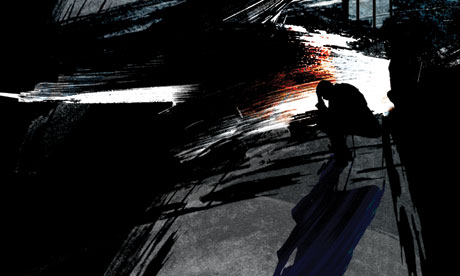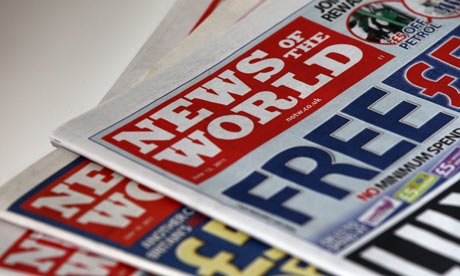Ben Chu in The Independent
Regulators on both sides of the Atlantic failed to act on clear warnings that the Libor interest rate was being falsely reported by banks during the financial crisis, it emerged last night.
Regulators on both sides of the Atlantic failed to act on clear warnings that the Libor interest rate was being falsely reported by banks during the financial crisis, it emerged last night.
A cache of documents released yesterday by the New York Federal Reserve showed that US officials had evidence from April 2008 that Barclays was knowingly posting false reports about the rate at which it could borrow in order to assuage market concerns about its solvency.
An unnamed Barclays employee told a New York Fed analyst, Fabiola Ravazzolo, on 11 April 2008: "So we know that we're not posting, um, an honest Libor." He said Barclays started under-reporting Libor because graphs showing the relatively high rates at which the bank had to borrow attracted "unwanted attention" and the "share price went down".
The verbatim note of the call released by the Fed represents the starkest evidence yet that Libor-fiddling was discussed in high regulatory circles years before Barclays' recent £290m fine.
The New York Fed said that, immediately after the call, Ms Ravazzolo informed her superiors of the information, who then passed on her concerns to Tim Geithner, who was head of the New York Fed at the time. Mr Geithner investigated and drew up a six-point proposal for ensuring the integrity of Libor which he presented to the British Bankers Association, which is responsible for producing the Libor rate daily.
Mr Geithner, who is now US Treasury Secretary, also forwarded the six-point plan to the Governor of the Bank of England, Sir Mervyn King. The Bank pointed out last night that there was no evidence in the Geithner letter of banks actually making false submissions – although then note did allude to "incentives to misreport".
It was unclear last night whether Mr Geithner informed Sir Mervyn about the testimony of the Barclays employee who said that the bank was being dishonest in its submissions.
If it turned out that he did, that would be highly damaging for the Bank since it has always claimed that it never saw or heard any evidence that private banks were deliberately making false reports about their borrowing costs. Sir Mervyn is due to be questioned by the House of Commons Treasury Select Committee next Tuesday, where MPs are likely to put this question to the Governor.
The Bank's Deputy Governor, Paul Tucker, went before the Treasury committee last week to answer allegations that he had put pressure on Barclays to misreport its borrowing rates in 2008 while attempting to promote financial stability. Mr Tucker denied that he had done so and said he only found out that Barclays had been deliberately submitting dishonest Libor submissions recently.
The New York Fed released its cache of documents in response to a request from the chairman of Congress's Committee on Financial Services on Oversight and Investigation, Randy Neugebauer, who has been investigating how much US regulators knew about the rate-fixing scandal, in which 11 other banks around the world have been implicated.
A separate email released by the Bank of England yesterday shows that Mr Tucker forwarded the Geithner email to Angela Knight, the former chief executive of the British Bankers Association. She responded saying that "changes had been made to incorporate the views of the Fed".
While the BBA is understood to have acted on two of Mr Geithner's proposals, the other four were not adopted.
Before hearing from Sir Mervyn on Tuesday, the Treasury Select Committee is set to take evidence on Monday afternoon from Jerry del Missier, the former chief operating officer at Barclays, who gave the green light for traders to submit false Libor submissions during the crisis. He will be asked about whether he thought the order to do so had come down from the Bank of England.
Last month Barclays was fined £290m for rigging Libor between 2005 and 2008. The regulators found that Barclays traders had initially submitted false reports to make profits for its traders, but subsequently to allay concerns about the bank's health. Barclays' chief executive Bob Diamond resigned on 3 July. The Libor rate is used to fix the cost of borrowing on mortgages, loans and derivatives worth more than $450 trillion (£288 trillion) globally.
The missed warnings: ‘So we know that we’re not posting, um an honest Libor
One document released yesterday by the Fed detailed a conversation between staffer Fabiola Ravazzolo and an unnamed Barclays employee in April 2008, including the following edited extract:
Fabiola Ravazzolo: And, and why do you think that there is this, this discrepancy? Is it because banks maybe they are not reporting what they should or is it um…
Barclays employee: Well, let's, let's put it like this and I'm gonna be really frank and honest with you.
FR: No that's why I am asking you [laughter] you know, yeah [inaudible] [laughter]
BE: You know, you know we, we went through a period where we were putting in where we really thought we would be able to borrow cash in the interbank market and it was above where everyone else was publishing rates.
FR: Mm hmm.
BE: And the next thing we knew, there was um, an article in the Financial Times, charting our LIBOR contributions... and inferring that this meant that we had a problem... and um, our share price went down... So it's never supposed to be the prerogative of a, a money market dealer to affect their company share value.
FR: Okay.
BE: And so we just fit in with the rest of the crowd, if you like... So, we know that we're not posting um, an honest LIBOR. And yet and yet we are doing it, because, um, if we didn't do it it draws, um, unwanted attention on ourselves.
FR: Okay, I got you then.
BE: And at a time when the market is so um, gossipy... it was not a useful thing for us as an organization.


